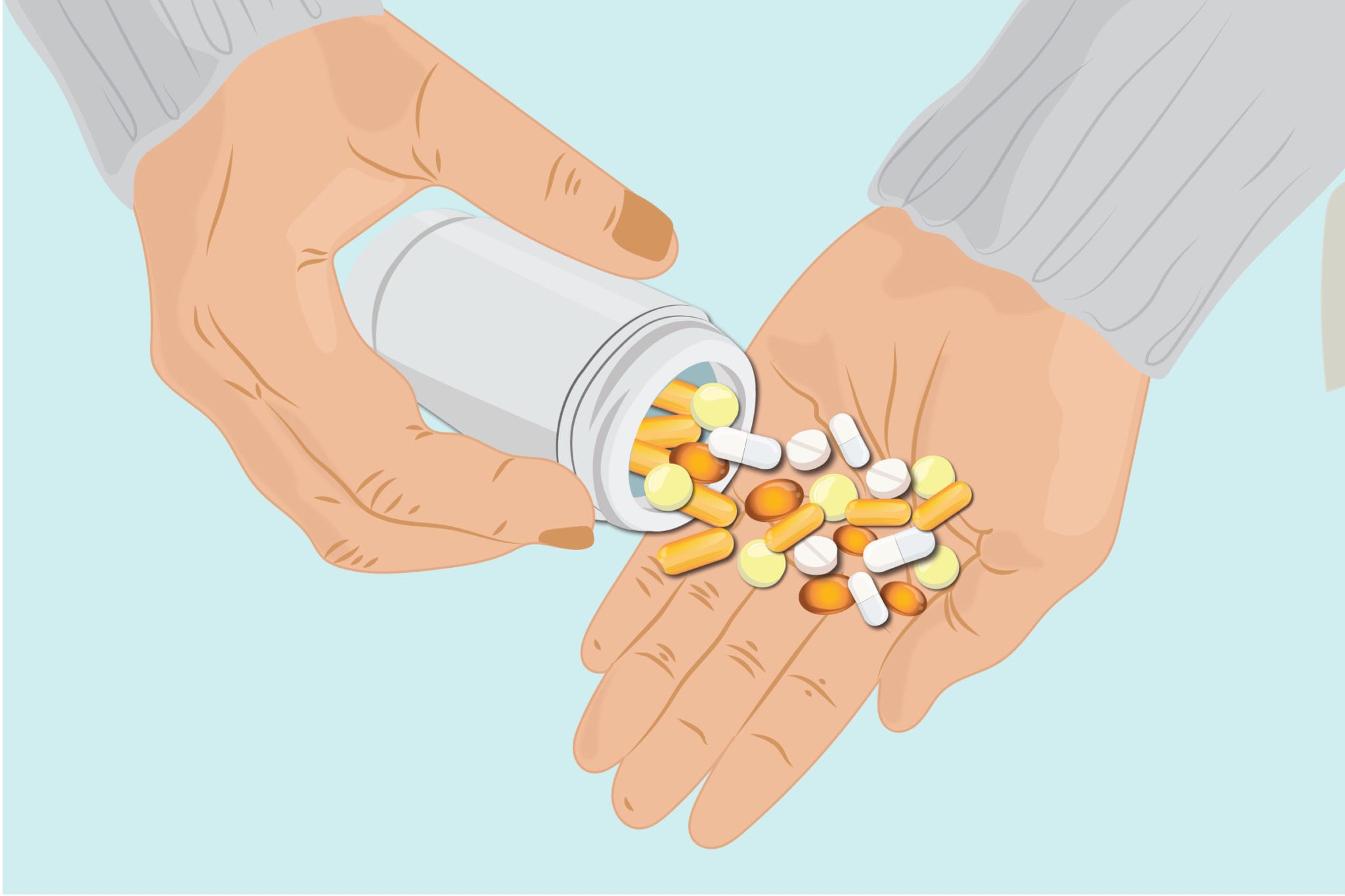

Older patients save money when they pay cash for certain generic drugs at Walmart rather than using health insurance, according to a widely reported article in the journal Annals of Internal Medicine.
“We already know from consumer reports that beneficiaries can sometimes get better deals by paying the cash price — without using insurance — at a pharmacy or at a generic drug discount program, rather than paying the copay using their insurance, but there wasn’t good data on how this varied across plans,” study author Joseph Ross, MD, a Yale associate professor of medicine, told Reuters.
The researchers studied information about generic medications for common cardiovascular problems in about 625 drug plans and 1,500 Medicare Advantage plans. (Learn more about the ins and outs of picking the right Medicare plan here.)
Ross told Reuters that his and colleagues’ research found a “surprising percentage of plans — particularly Medicare Advantage plans — have cost-sharing structures in place that may not give the cheapest option to their beneficiaries for common generic cardiovascular drugs.” More expensive drugs are associated with lower rates of patient adherence to treatment, he added.
As MedPage Today explains, Ross and colleagues found in about 20 percent of Medicare plans patients paid more for 30-day supplies of drugs than they would have been charged under Walmart’s discounted $4 price for generic drugs.
“Never assume that, just because a particular drug is on the $4-per-month formulary, that your patient will not have to pay more out-of-pocket money to obtain this medication,” William Elliott, MD, PhD, chief of pharmacology at Pacific Northwest University of Health Sciences, told MedPage.
“The main take-home message is that [patients] should be sure to shop around and check whether their medications are available at a local generic drug discount program for a price below what they are paying when they use their insurance at the pharmacy,” Ross told Reuters.
The differences between drug costs in the study might appear small, but many cardiac patients take multiple drugs, notes Fatima Rodriguez, MD, MPH, associate editor of NEJM Journal Watch Cardiology. “These out-of-pocket expenses quickly add up,” she wrote in the journal. “We clinicians should encourage our patients to shop around for their generic drugs or to enroll in standalone prescription drug plans.”
And, as NBC News reports, the study is timely given what are called pharmacy gag rules, which prohibit pharmacists from informing patients in certain instances that there are ways they can save money on their medication. “Everyone’s talking about pharmacy costs these days,” Dr. Ross told NBC. “We did this study in part because of all the discussion about pharmacy gag rules.”
The largest disparities in patient costs, the study found, were in Medicare Advantage plans and higher-tier programs, which are the most expensive.
“Twenty percent of the time, at least, we should go to Walmart,” Ross told NBC.





